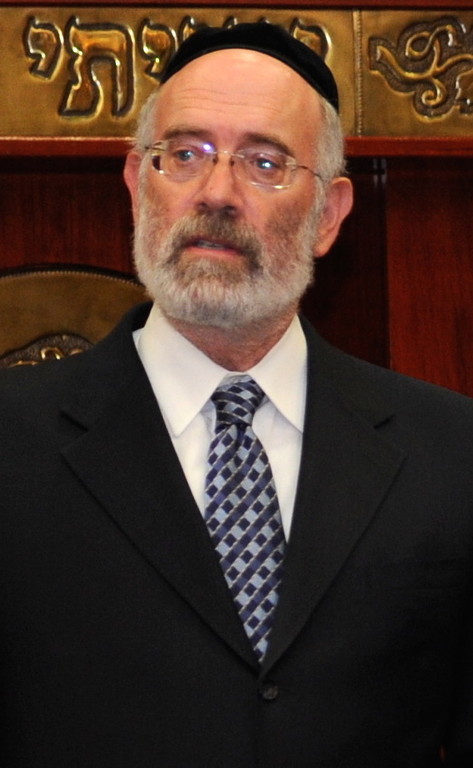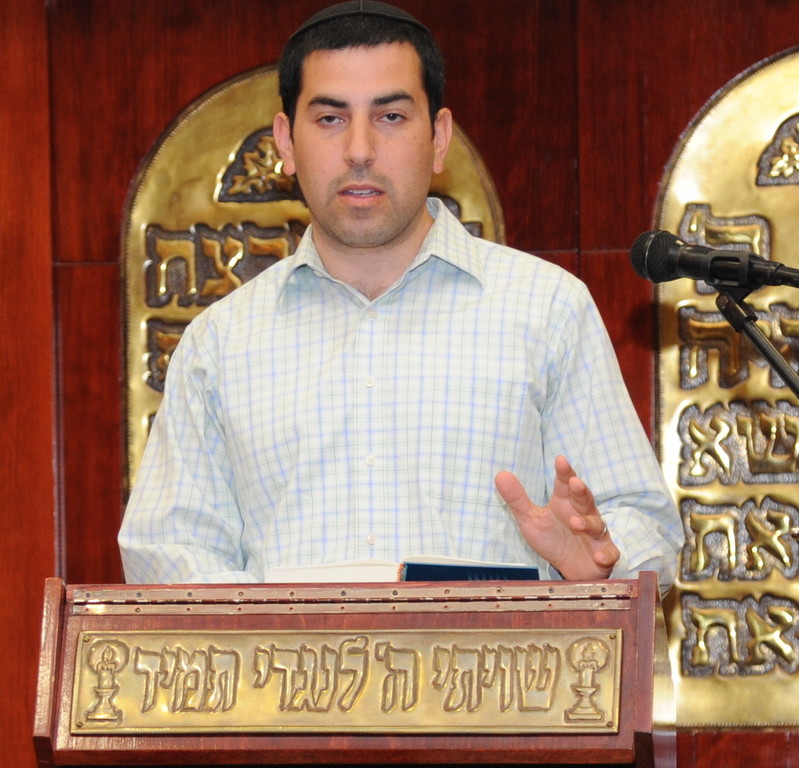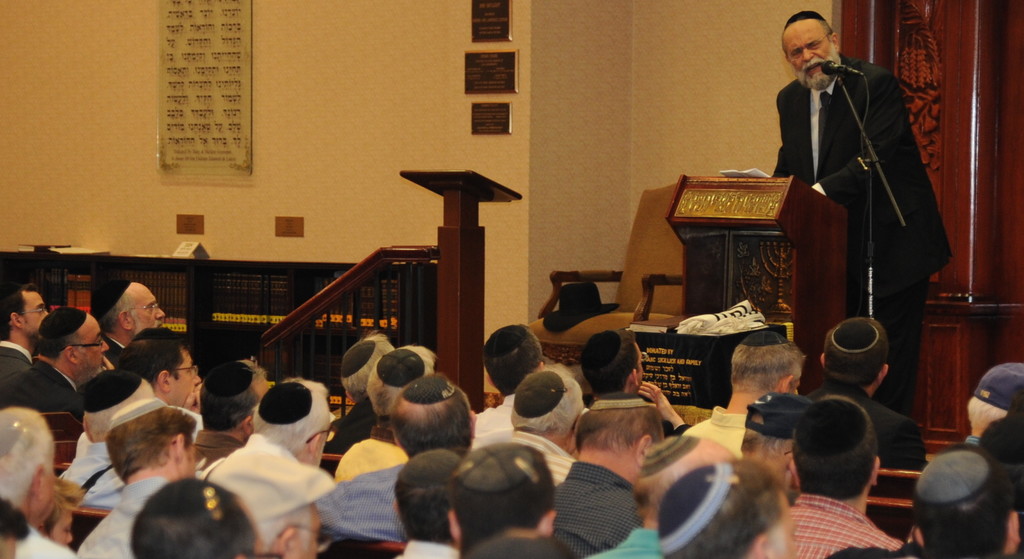Community gathers for tefilah and shloshim at YILC
About 500 men and women filled the main sanctuary of the Young Israel of Lawrence-Cedarhurst Tuesday evening for the completion of the entire Mishna for the shloshim (30th day memorial service) after the murder of kidnapped Naftali Frankel, Gilad Shaer and Eyal Yifrach.
Rabbi Moshe Teitelbaum of YILC, who led the community-wide gathering, said that the three boys’ souls “should have an aliyah” noting that they served Hakodosh Baruch Hu and his people in a way that we couldn't imagine and can't yet grasp and that the tragedy of their blood brought Am Yisrael together.
Rabbi Menachem Mendel Blachman, associate rosh yeshiva at Yeshivat Kerem B’Yavneh, said we look to find answers in tragedies but must live without answers. Despair over loss is natural, he said, and should lead to a return to religious awareness and priorities.
Responsive readings of Tehillim 20, 120, 121 and 142 were led by Rabbi Hershel Billet of Young Israel of Woodmere, Rabbi Ariel Rackovsky of the Irving Place Minyan, Rabbi Ari Perl of the Atlantic Beach Jewish Center, and Rabbi Aryeh Lebowitz of Beis Haknesses of North Woodmere, respectively. Cantor Joel Kaplan of Congregation Beth Sholom in Lawrence sang a mishebairach (blessing) for Israeli soldiers.
Leading up to Tuesday’s shloshim, many people across the communities of the Five Towns contributed learning towards completing the Mishna and Hillel Tuchman read and explained the final Mishna in Uktzin. After the kaddish, a kel maleh rachamim (G-d full of mercy) prayer was recited for the three boys and another for the fallen IDF soldiers.
Rabbi Blachman said that every Jew carries an aspect of G-dliness, each has a mission and is a unique note in a symphony; when one is gone, that note is missing. When a person dies, we pray that G-d be revealed, he said.
He recalled that when his two daughters were born he said the blessing hatov vehamaytiv (G-d who does good), but there are times when baruch dayan emet (blessed is the True Judge) must be said, noting that he recites kaddish on Yom Kippur for his two-year-old brother who was murdered in Auschwitz. We have to acknowledge and accept G-d even when things are rough, he said.

 45.0°,
Partly Cloudy
45.0°,
Partly Cloudy 









